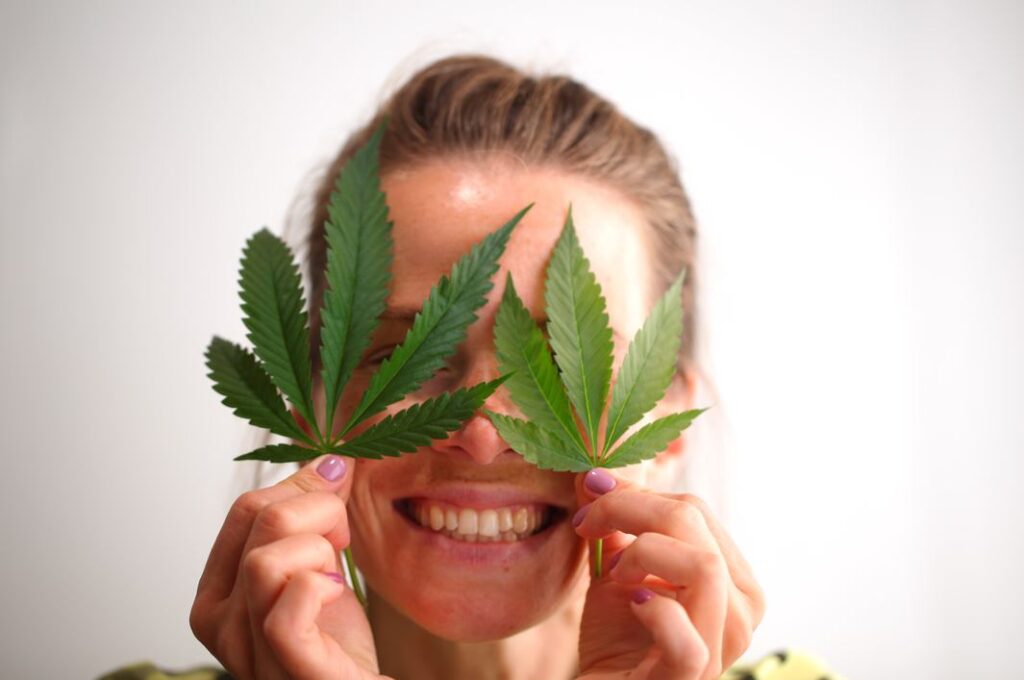
What’s the Difference Between Hemp and Marijuana?
What's the Difference Between Hemp and Marijuana?
Cannabis is the broad term for all forms of the plant genus Cannabis sativa. Marijuana and hemp both belong to the cannabis family. Marijuana is what you might think of when someone says “cannabis,” but hemp is a different variety that has been cultivated for many purposes, including therapeutic ones. Even though they are members of the cannabis family, they have different uses, chemical compositions, and growing conditions.
We’ll break down the difference between hemp and marijuana so that you can determine which is most suitable for you.
What is Marijuana?
Marijuana is another variety of Cannabis sativa grown specifically for its THC content — the chemical compound in marijuana that gets you high when you smoke or ingest it. This version of cannabis has been bred over centuries to produce larger amounts of THC than industrial hemp plants produce naturally.
Just like hemp, the marijuana plant contains over 100 cannabinoids. In particular, marijuana’s buds are rich in THC and are used to produce medical or recreational cannabis products such as edibles, tinctures, and vape oils.
The THC chemical acts on specific receptors on brain cells that normally respond to the THC-like chemicals produced naturally by our bodies. But when THC attaches to these receptors, it sets off a series of cellular reactions that affect thinking, perception of time and movement, memory, and appetite.
Although most people who smoke marijuana feel relaxed, some experience anxiety attacks while high on it. High doses can cause paranoia or hallucinations. Besides using marijuana for its psychoactive effects, it is more valuable for its medicinal properties. People often use it to treat ailments such as:
insomnia
chronic pain associated with cancer treatment
epilepsy
But because marijuana is illegal under federal law, research on its medical benefits has been stifled by a lack of funding and societal stigma surrounding recreational use and abuse. Although, at present many states are starting to decriminalize the use of marijuana for both recreational and medicinal purposes.
What is Hemp?
Hemp is a plant that is closely related to the marijuana plant. Many industries grow hemp for its fibers, seeds, and other parts. People make a wide variety of products from industrial hemp, including:
Textiles (for rope and clothing)
Food (seeds, milk, flour)
Paper
Cosmetic and skincare products
Building materials
Animal feed
Natural remedies
Industrial oils
Hemp contains more than 100 different cannabinoids. Among them are cannabidiol (CBD), cannabigerol (CBG), tetrahydrocannabinol (THC), and cannabinol (CBN). Cannabinoids are chemical compounds secreted by hemp plants. They interact with the human body’s endocannabinoid system, which is responsible for various physiological processes, including sleep/wake cycles, appetite, pain perception, and immune function.
One major difference between marijuana and hemp is their concentration of the cannabinoid tetrahydrocannabinol (THC), known for producing the “high” associated with marijuana use. Industrial hemp has such low levels of THC that they don’t produce any psychoactive effects at all — you can’t get high from taking hemp-based products like CBD oil or gummies.
CBD from hemp has health and wellness benefits, just like marijuana. Here are just a few of the potential benefits that CBD can provide:
Pain relief
Sleep aid
Inflammation reduction
Anti-anxiety effects
Antioxidant properties
Is Hemp Legal?
The 2018 Farm Bill made it legal to grow industrial hemp in all 50 states. According to law, it is legal as long as it contains not more than 0.3%) so it doesn’t have any mind-altering effects. Although the USA permits hemp on a federal level, legality on a state level depends on where you live because laws differ widely on whether it’s legal for people to use CBD oil.
Where is Marijuana Legal?
Marijuana is legal in certain states. The drug’s legality varies depending on the state and whether you use it for medicinal purposes or recreationally. The state laws on marijuana possession differ widely, with some allowing possession of small amounts for personal use and others restricting it to medical use only.
Some states that legalize marijuana for recreational use, including
Alaska
California
Colorado
Maine
Massachusetts
Michigan
Nevada
Oregon
Vermont
Washington
See more details about marijuana legalization at the National Conference of State Legislatures.
There are varying licensing processes for dispensaries in different states. However, all states where marijuana is legal to require businesses to have a license to sell marijuana. In addition, each state has its own rules defining how much marijuana adults can legally possess, whether they can grow marijuana plants themselves, and how taxes come into play. Several states allow the possession of small amounts and criminalize the legal sale or cultivation of the drug.
Takeaway: So, Are Hemp and Marijuana The Same?
No. The difference between hemp and marijuana starts with their physical structures. Hemp has tall, thin stalks with few leaves, while marijuana plants have shorter, bushier stalks with more leaves.
While both plants are varieties of the same species, Cannabis sativa, they have different uses, chemical compositions, and biological properties.
The second difference between hemp and marijuana is their application in modern society. Hemp has many industrial uses for making paper, textiles, biodegradable plastics, construction materials, fuel, food, animal feed, and more.
Nowadays, many people choose hemp-based CBD. CBD cannabinoid from hemp also possesses many therapeutic benefits without psychoactive effects. People typically use marijuana for recreational or medicinal purposes. Another notable difference between hemp and marijuana is their THC content. Hemp contains less than 0.3% THC. This makes hemp completely non-psychoactive in comparison to marijuana, which may have 5% to 30% THC depending on how much weed was used for each strain.
To decide between CBD from hemp vs. marijuana, you must consider where you live for legal purposes, how you intend to use it (either recreationally or medicinally), and your personal preferences.


